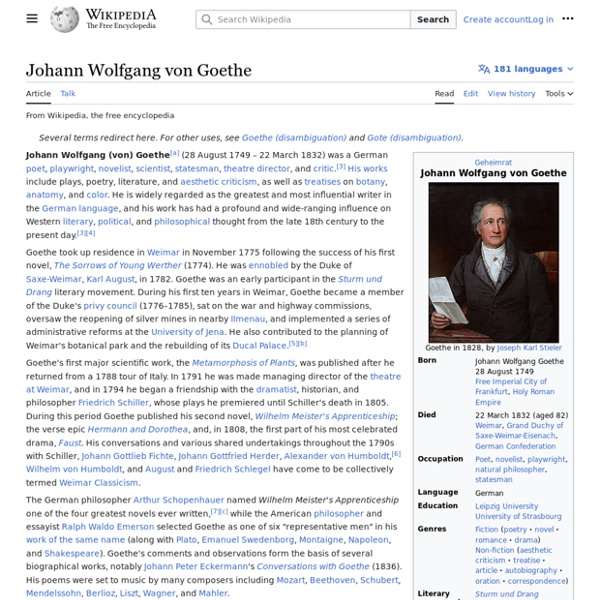Nabucco
Nabucco is the opera which is considered to have permanently established Verdi's reputation as a composer. He commented that "this is the opera with which my artistic career really begins. And though I had many difficulties to fight against, it is certain that Nabucco was born under a lucky star".[2] It follows the plight of the Jews as they are assaulted, conquered and subsequently exiled from their homeland by the Babylonian King Nabucco (in English, Nebuchadnezzar II). The historical events are used as background for a romantic and political plot. The best-known number from the opera is the "Chorus of the Hebrew Slaves", "Va, pensiero, sull'ali dorate" / "Fly, thought, on golden wings", a chorus which is regularly given an encore in many opera houses when performed today.
Francis Bacon
English philosopher and statesman Francis Bacon, 1st Viscount St Alban,[a] Kt PC QC (;[5] 22 January 1561 – 9 April 1626), also known as Lord Verulam, was an English philosopher and statesman who served as Attorney General and as Lord Chancellor of England. His works are credited with developing the scientific method and remained influential through the scientific revolution.[6] Francis Bacon was a patron of libraries and developed a functional system for the cataloguing of books by dividing them into three categories—history, poetry, and philosophy—which could further be divided into more specific subjects and subheadings.
en.m.wikipedia
German poet, philosopher, historian, and playwright Johann Christoph Friedrich (von) Schiller (German: [ˈjoːhan ˈkʁɪstɔf ˈfʁiːdʁɪç fɔn ˈʃɪlɐ], short: pronounced [ˈfʁiː.dʁɪç ˈʃɪ.lɐ] ( listen); 10 November 1759 – 9 May 1805) was a German poet, philosopher, physician, historian, and playwright.
www.britannica
religion THIS IS A DIRECTORY PAGE. Britannica does not currently have an article on this topic. Adam and Eve In Adam and Eve…were persons of innocence until Eve yielded to the temptations of the evil serpent and Adam joined her in eating the forbidden fruit, whereupon they both recognized their nakedness and donned fig leaves as garments. Immediately God recognized their transgression and proclaimed their punishments—for the woman, pain in childbirth and… Read More
Parsifal
Opera by Richard Wagner Parsifal (WWV 111) is an opera in three acts by German composer Richard Wagner. It is loosely based on Parzival by Wolfram von Eschenbach, a 13th-century epic poem of the Arthurian knight Parzival (Percival) and his quest for the Holy Grail (12th century). Wagner conceived the work in April 1857, but did not finish it until 25 years later. It was his last completed opera, and in composing it he took advantage of the particular acoustics of his Bayreuth Festspielhaus. Parsifal was first produced at the second Bayreuth Festival in 1882.
Plotinus
Biography[edit] Plotinus had an inherent distrust of materiality (an attitude common to Platonism), holding to the view that phenomena were a poor image or mimicry (mimesis) of something "higher and intelligible" [VI.I] which was the "truer part of genuine Being". This distrust extended to the body, including his own; it is reported by Porphyry that at one point he refused to have his portrait painted, presumably for much the same reasons of dislike. Likewise Plotinus never discussed his ancestry, childhood, or his place or date of birth. From all accounts his personal and social life exhibited the highest moral and spiritual standards. Plotinus took up the study of philosophy at the age of twenty-seven, around the year 232, and travelled to Alexandria to study.
en.m.wikipedia
We ask you, humbly: don't scroll away. Hi, reader in Canada, it seems you use Wikipedia a lot; that's great! It's a little awkward to ask, but this Saturday we need your help.
www.britannica
Top Questions What is Miguel de Cervantes best known for? Miguel de Cervantes is the most important and celebrated figure in Spanish literature. He is best known for being the author of Don Quixote (1605, 1615), a widely read literary classic. He also was noted for his short story collection Novelas exemplares (1613; Exemplary Stories) and several plays and poems.
Montesquieu
French social commentator and political thinker Charles-Louis de Secondat, Baron de La Brède et de Montesquieu (;[2] French: [mɔ̃tɛskjø]; 18 January 1689 – 10 February 1755), generally referred to as simply Montesquieu, was a French judge, man of letters, and political philosopher. He is the principal source of the theory of separation of powers, which is implemented in many constitutions throughout the world. He is also known for doing more than any other author to secure the place of the word "despotism" in the political lexicon.[3] His anonymously-published The Spirit of Law in 1748, which was received well in both Great Britain and the American colonies, influenced the Founding Fathers in drafting the United States Constitution.



